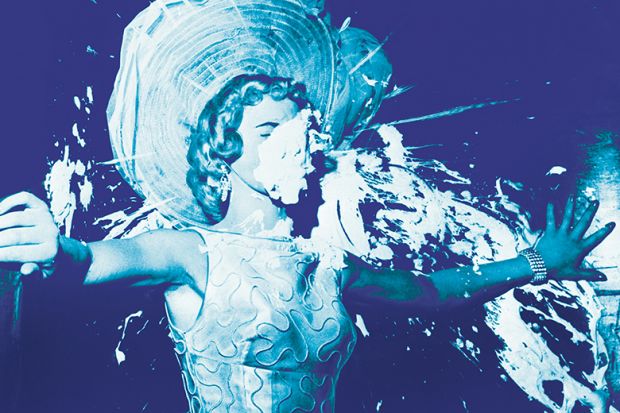A few years ago, when conferences were still public events, I was midway through giving a paper when someone shouted out “You’re wrong!” – but offered no further elaboration.
When I tell this tale to non-academic friends, they are typically horrified. Such public rudeness would not be tolerated in their workplaces, they say. Yet some academic colleagues see little wrong with my opponent’s behaviour.
I’m with the non-academics on this one.
Don’t get me wrong. Although it’s sometimes tough to hear, I welcome criticism. We are seekers after the truth, after all, not omniscient sages. The more we know, the more we know what we don’t know. So our job is not just to speak but also to listen. In my case, I have learned an immense amount by showing my work to people with very different intellectual and theoretical viewpoints from mine, leading me to develop or reconsider my argument in light of authors, theorists, data or cases that I’ve missed.
But criticism must be constructive for this process to work. And, unfortunately, that seems to be beyond some of us.
THE Campus resource: Creating a welcoming and inclusive online learning community
This comes out most clearly in the dreaded peer-review process, whose anonymity can produce extreme rudeness. Everyone has a tale of a referee’s report that simply said: “This argument is without merit” (or an even more insulting version thereof). You are left to wonder how exactly your argument is without merit. Sometimes the implication is that your theoretical perspective does not agree precisely with the reviewer’s and must therefore be utterly wrong – and perhaps immoral and dangerous. Other times, the problem appears to be that you did not write the exact article the referee wanted or you reached a different conclusion from theirs.
When I was a junior lawyer, my rule of thumb was never to say anything I’d be ashamed to have brought before a judge under my own name. A non-legal equivalent might be: never say anything you’d be ashamed to see attributed to you on the front page of a tabloid.
Then again, social media are very public forums. Yet academics increasingly use them to conduct post-publication “peer review” of controversial papers, which can quickly descend into mobbing and grandstanding. Social media make it too easy to go down an outrage spiral when you feel personally piqued. I’m no exception – I fell into the trap once by publicly criticising judicial decisions intemperately. It takes courage to admit you were wrong and apologise.
As an aside, the tiresome reality is that someone reading this will probably google me, see my reddish hair and pale skin, and tell me to “check my privilege”. Academic decorum, they will say, is the least of our concerns in defending the rights of the historically underprivileged. As it happens, while I am lucky to have many advantages, I have suffered from cerebral palsy since birth and my grandfather had visible Aboriginal ancestry (his army nickname would be deemed offensive these days). But, frankly, I don’t see how my background is relevant to my views, either about the law or about how academics should conduct ourselves.
Intemperate criticism doesn’t even have the desired effect. Simply being told that I am wrong, stupid, dangerous or even bad has never changed my mind. If anything, I begin to suspect that the opposite is true: if this is the only retort available, perhaps there is a grain of truth in my thesis that is scaring my critic.
My non-academic friends are astonished that we don’t have any ground rules for how criticism should be conducted – such as that when we criticise someone, we do them the courtesy of explaining clearly and concisely how and where they are wrong – ideally with suggestions for improving their argument. But such rules would not even be necessary if we adopted a more charitable mindset that accepted that our opponent is not necessarily evil for holding a different view, that everyone makes mistakes (I make many) and that the famous “shit sandwich” (criticism inserted between two slabs of positivity) is the best way to deliver food for thought.
Sometimes an article does need to be withdrawn if it is shown to contain fraud, negligence or egregious errors. But when you simply disagree with the conclusion, the appropriate response is to write a considered academic rebuttal; this contributes to the greater fund of knowledge. Journals could help by soliciting such rebuttals rather than simply withdrawing articles caught up in Twitter storms. They should also do more to ensure that peer-review reports are constructive.
You might say all of this is ultimately academic, but I would argue that it undermines the academy’s position in society. When we shout “you’re wrong” at each other (or, worse, at members of the public) we don’t look clever; we look like playground bullies.
Of course, we aren’t the only culprits. But surely academia should model the constructive criticism of ideas. After all, if even professional thinkers can’t manage it, who in this increasingly bad-tempered world can be expected to?
Katy Barnett is a professor at Melbourne Law School. The views expressed here are her own.
Register to continue
Why register?
- Registration is free and only takes a moment
- Once registered, you can read 3 articles a month
- Sign up for our newsletter
Subscribe
Or subscribe for unlimited access to:
- Unlimited access to news, views, insights & reviews
- Digital editions
- Digital access to THE’s university and college rankings analysis
Already registered or a current subscriber?








